May 2022
This is a short list of poetic works in Sanskrit. Most of the works included here are well known to our literary tradition. This list is divided into two parts: The first part keeps in mind a lover of Sanskrit poetry who might not actively compose verses in the language. The second part comprises works that a budding Sanskrit poet who is serious about his passion ought to read. Needless, the first part is a must-read for budding poets as well....
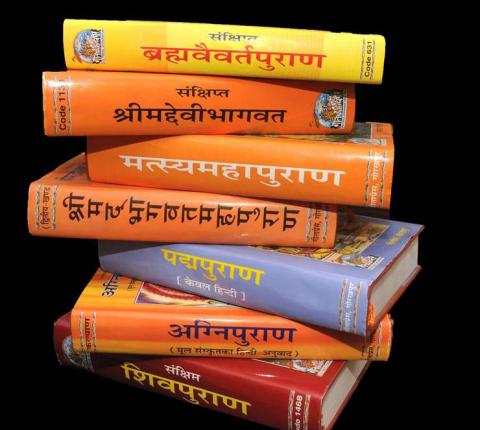
The Purāṇas occupy a high rank amongst India’s literary contribution to the world. In addition to being written lore of the highest magnitude, the Purāṇas have also remained in the oral tradition, percolating to the grassroots. They eminently represent the very nature of Sanātana-dharma and can easily qualify as ‘the encyclopaedia of the commoners.’ While the Vedas express the aspirations, inspirations, amazement, and philosophy of the ancient...

After listening to these words, Padmāvatī thought for a while and said “It wasn’t right of you to tell me only now about your friend. I consider him now as my elder brother. So, mustn’t I receive him with due honours?”
That evening, Vajramukuṭa went back and explained everything to Buddhiśarīra. The next morning when they had completed their ablutions and other rituals and were just sitting down to talk, a friend of Padmāvatī came and asked...
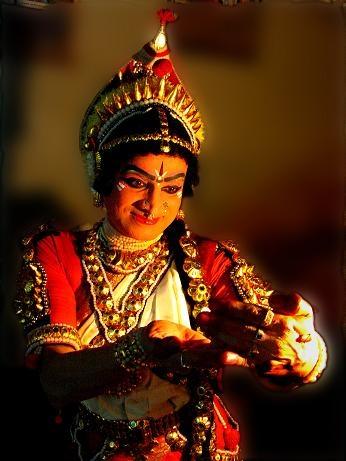
The interpretation and elaboration that Mantap does for the line raṅganyātakè bārano is extraordinary. He shows several different emotions of the gopikā as he enacts the line. O Raṅga! Why haven’t you come? – Do you think I am ugly? Or has our love lost lusture? Have other women captured you more than me? Or am I hallucinating? I am not able to bear this! Why is he so proud? Why is he arrogant and insensitive? Why do you still ignore? – in his...
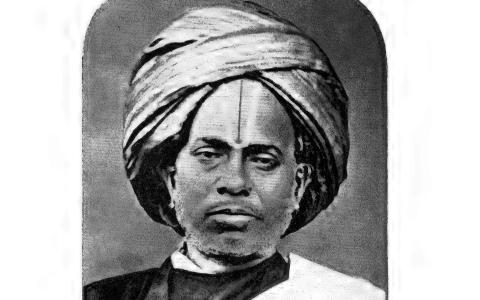
Appendix
[A few incidents which highlight Rungacharlu’s nature and character can be seen in an article published in the Deccan Herald dated 7th December 1961. The writer of this article, Sri A S R Chari, was Rungacharlu’s grandson. He worked as a Judge in the Mysore High Court for a brief period before his retirement.]
He [Rungacharlu] was my grandfather on the mother’s side. I am the oldest living member in the family (90). I have no personal...

Language is perhaps the best mode of communication available to humans. Literature—poetry in particular—is the acme of language. There are several ancient classical languages, but Sanskrit is the only one with an unbroken tradition of thousands of years. It has produced numerous poetic works of an astounding variety.
We have standalone verses; cluster of verses in fives, tens and hundreds; lyrical compositions; long and short stories; fables;...

rāṣṭraṃ vā aśvamedhaḥ…
– Yajurveda (Taittirīya-brāhmaṇa 3.8.9)
kalpate ha vai tatra prajābhyo yogakṣemaḥ
yatraitena yajñena yajante
– Yajurveda (Taittirīya-brāhmaṇa 3.8.13)
The nation itself is the Aśvamedha (aśva represents the State)... with that both gain (yoga) and well-being (kṣema) of the citizens are achieved…
Just about thirty years ago, in 1939, during Sir Mirza Ismail’s tenure as the Dewan, the erstwhile government of Mysore...

Mṛgāṅkadatta spent the night there and left for Ujjayini the following morning. On his way, he saw a terrible-looking person carrying away his minister Vikramakesarin in the skies. Looking at Mṛgāṅkadatta, he stopped at the point and let the minister down. Vikramakesarin prostrated at the king’s feet. They embraced each other. Then he told the man who had brought him, “You may reappear when I think of you. Now carry on!” before sending him away...
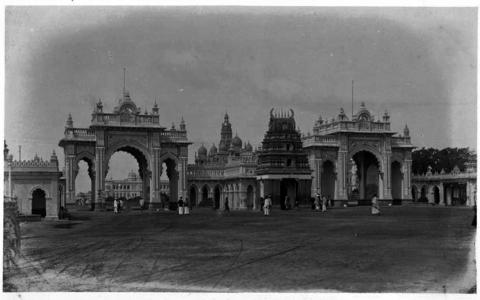
Five-year Plan
After Krishna Rao retired from the Government of Mysore, at the time of announcement of the first Five-year Plan of the Indian Government, he wrote me a private letter and expressed his disagreement. “I have learnt from experience how wasteful expenditure takes place and how money gets drained when it dawns on the officers of different departments that more money is available for spending. How officers rush to spend the money...
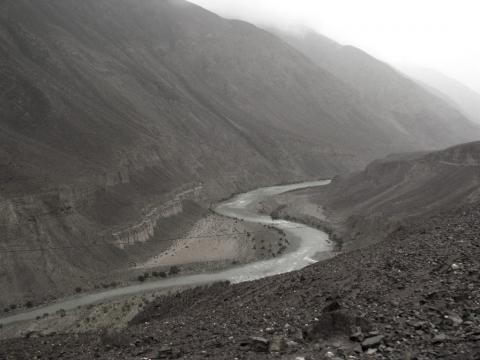
Once we say that it is not wrong but only fit and proper to experience pleasure, we have to make all arrangements to obtain it. Sustaining the family, earning a salary for their comfort, taking loans in case there are emergencies and repaying them, giving and taking help, struggling thus in many ways become the duty of a householder.
Śrī Śankarācārya’s instruction is thus –
yogarato vā bhogarato vā saṅgarato vā saṅgavihīnaḥ
yasya brahmaṇi...
